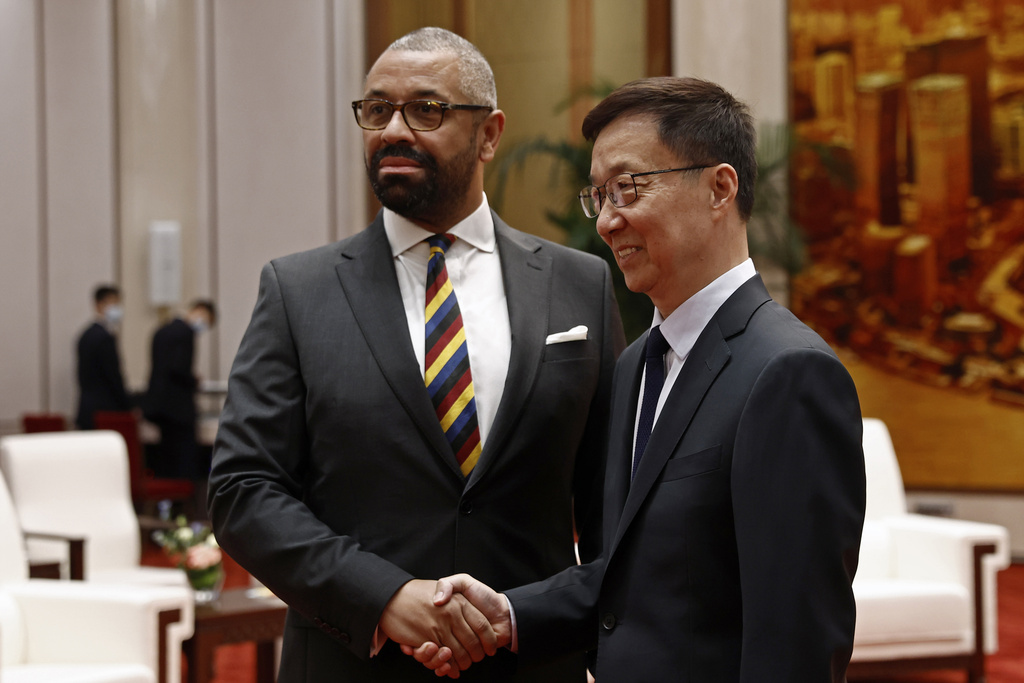
BEIJING — Britain’s top diplomat, James Cleverly, began a long-awaited visit to China on Wednesday as the two countries attempt to stabilize bilateral ties that have frayed badly in recent years.
The trip is the first by a United Kingdom foreign secretary to China in more than five years, underscoring the downturn in relations over Beijing’s curbing of civil liberties in Hong Kong, a former British colony, abuses against Muslim minorities in the Xinjiang region, China’s support for Russia and Britain’s close security ties with the United States.
Read More: China Is Cracking Down on Cantonese Language Advocacy in Hong Kong
Cleverly met first with Vice President Han Zheng, who said the visit will “further promote the sound and stable development of bilateral relations.”
Cleverly will meet later in the day with his Chinese counterpart, Wang Yi, who is both the ruling Communist Party's top official for foreign affairs and recently resumed his former post as foreign minister after the still-unexplained disappearance of his predecessor, Qin Gang.
On Tuesday, Chinese Foreign Ministry spokesperson Wang Wenbin said Beijing hoped the British side will "work with us to uphold the spirit of mutual respect, deepen exchanges, enhance mutual understanding and promote the stable development of Sino-British relations.”
Read More: Why China’s Delegate to King Charles’ Coronation Is Causing Controversy
Cleverly has said he would raise issues such as Xinjiang and Hong Kong, and is expected to stress that Chinese influence comes with responsibility on the global stage — including helping end Russia’s invasion of Ukraine and diffusing geopolitical tensions in the South China Sea.
British Prime Minister Rishi Sunak is aiming to pursue a nuanced, non-confrontational approach to relations with Beijing. He has described China as a growing “systemic challenge” to Britain’s values and interests, but he has also stressed the need to maintain a relationship with the Asian superpower.
More Must-Reads From TIME
- What Student Photojournalists Saw at the Campus Protests
- How Far Trump Would Go
- Why Maternity Care Is Underpaid
- Saving Seconds Is Better Than Hours
- Welcome to the Golden Age of Ryan Gosling
- Scientists Are Finding Out Just How Toxic Your Stuff Is
- The 100 Most Influential People of 2024
- Want Weekly Recs on What to Watch, Read, and More? Sign Up for Worth Your Time
Contact us at letters@time.com